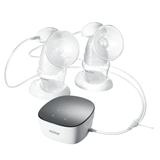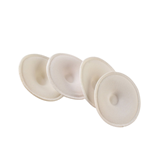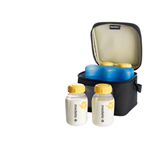The risk seems to be cumulative and strongest among those who describe themselves as "morning" people or "larks," rather than "evening" people or "owls."
Between one in 10 and one in five of the workforces in Europe and the US works night shifts. And in 2007 the International Agency for Research on Cancer (IARC) concluded that shift work, which disrupted the body clock (circadian rhythms), was "probably carcinogenic," and called for more research.
Previous studies have focused on nurses, who might be exposed to other cancer causing agents, and have excluded other potentially influential factors, such as exposure to sunlight, say the authors.
They included more than 18,500 women working for the Danish Army between 1964 and 1999, all of whom had been born between 1929 and 1968, in their study.
They were able to contact 210 women out of a total of 218, who had had breast cancer between 1990 and 2003, and who were still alive in 2005/06. These women were then matched with 899 women of the same age, who had also worked for the Danish Army, but who had not developed breast cancer.
In all, 141 of those with breast cancer, and 551 of those free of the disease, completed a detailed 28 page questionnaire.
This included questions on their jobs and working patterns; lifestyle, including reproductive history, use of contraceptives, hormone replacement therapy, and sun bathing habits; and whether they classified themselves as a "morning" or "evening" person, or neither (diurnal patterns).
The results, which are based on 692 responses - of which 141 were from women with breast cancer - showed that, overall, night shift work was associated with a 40 per cent increased risk of breast cancer compared with no night shifts.
But women who worked night shifts at least three times a week, and for at least six years, were more than twice as likely to have the disease as those who had not.
And those working this shift pattern for this length of time were even more likely to have breast cancer if they were "morning" types.
They were almost four times as likely to have the disease as those who didn’t work nights, possibly because morning types are more susceptible to body clock disruption, suggest the authors. "Evening" types were twice as likely to have breast cancer.
Yet "larks" not working night shifts tended to have a lower overall risk of breast cancer than "owls."
Lack of sunlight has been linked to the development of various cancers, including that of the breast, but women who worked night shifts tended to sunbathe more frequently than those who worked during the day, say the authors.
The findings indicated that working up to two night shifts a week had no impact on the risk of developing breast cancer, which may not be long enough to disrupt the body clock, say the authors. On the other hand, frequent night shifts for several years may disrupt circadian rhythms and normal sleep patterns, and curb production of the cancer protecting hormone melatonin, they suggest.
These factors may be linked to the development or progression of breast cancer cells, say the authors, and may be more likely in those working three or more such weekly shifts for many years.






-160x160-state_article-rel-cat.jpg)
